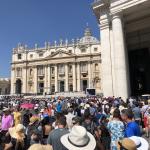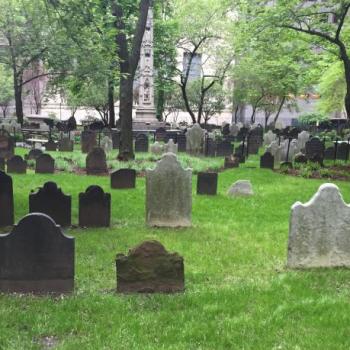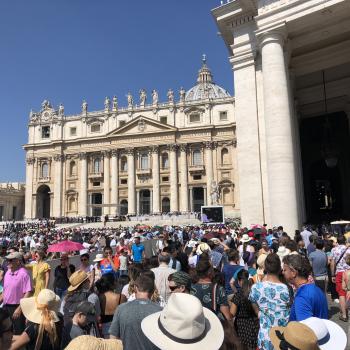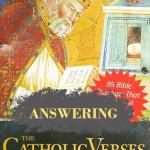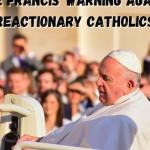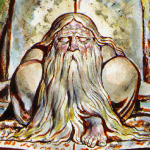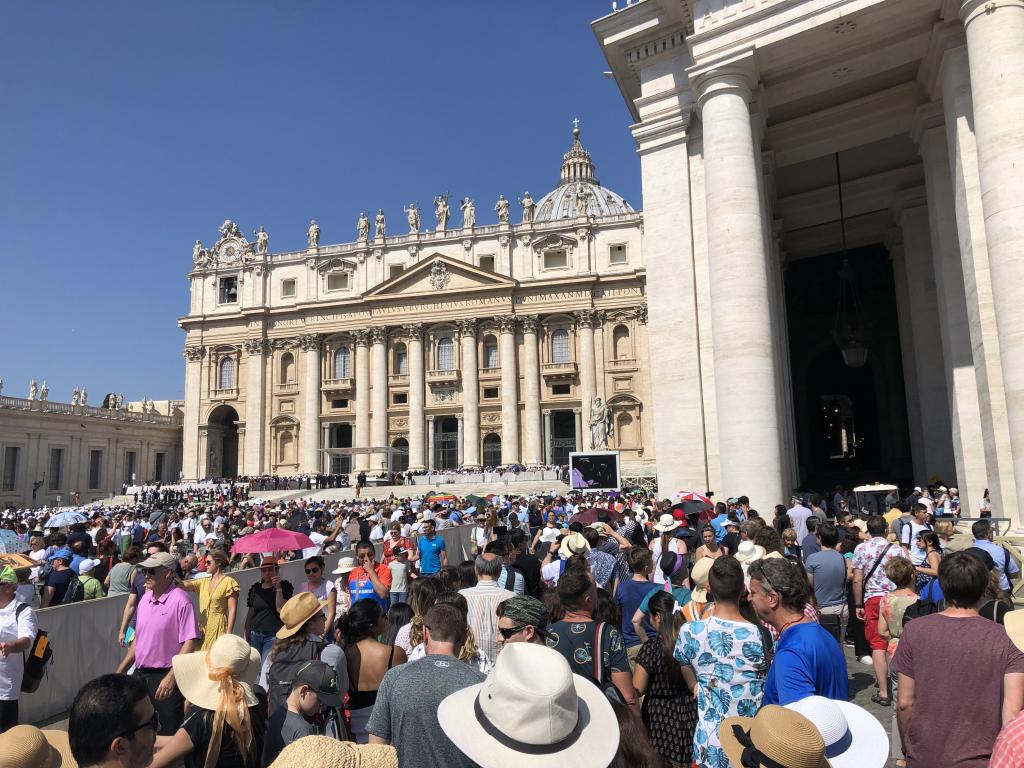
Yes, I spend too much time on twitter. Among other things, this means that each morning I see Cardinal Cupich’s pro-synod tweets, mostly incomprehensible, to be sure, and seemingly directed at a wholly different audience than his actual twitter followers. (Unlike everything else that he tweets, he/his social media manager does not tweet a Spanish translation of these tweets.) It feels like he is engaged in a propaganda effort to get his “flock” to accept whatever happens at the synod, which, of course, is not a good sign. In any case, I had limited myself to irritated responses on twitter.
But the other day I also came across an article at America magazine, by James Martin (whose claim to fame is a Price is Right approach to Catholic teaching, saying things that go as far as possible without actually being heretical, either with a game of “I’m just quoting someone” or by dancing around the meaning of what he says, but who is also one of six Americans at the synod). The article is titled “Is opposition to the Synod (and Pope Francis) rooted in a mistrust of the Holy Spirit?” and, yes, he wants to persuade his readers that the answer to this question is “yes” — that is, that critics and skeptics of the synod are really the ones who are rejecting God and/or church doctrine.
Here are the key paragraphs:
But I often wonder if the deeper opposition is to something else.
After we dig into the political, the sociological, the ecclesiological, the theological, even the spiritual, we have to ask ourselves two questions: First, do we trust in the Holy Spirit? And second, do we believe that the Holy Spirit is active both in this gathering of the faithful and in the individual consciences of the people participating in the synod? Throughout church history, we have been invited to trust in the Holy Spirit during times of uncertainty—with Pentecost as the defining example, but elsewhere as well, as during ecumenical councils and papal conclaves.
We may also need to ask a third question: If we trust in the Holy Spirit, why would we be fearful of Francis’ vision of the synod as a gathering where all voices are heard? . . .
Let’s focus on the second question, which I think may be at the heart of some of the opposition to Pope Francis: Do I believe that the Holy Spirit is alive in the individual conscience? . . .
“Amoris Laetitia” highlighted the church’s traditional teachings on conscience, reminding pastors that they are called to “form consciences, not replace them,” and inviting the church to reverence people’s consciences, for example, on the question of whether a divorced and remarried person may receive Communion.
To condemn the synod outright is akin to saying that we do not trust that the Spirit is alive in the hearts of our fellow Catholics.
Now, it seems to me that it is generally agreed upon that we cannot make demands of God, and we cannot demand that God intervene in human affairs in some way or another. You know the verse:
Jesus said to him in reply, “It also says, ‘You shall not put the Lord, your God, to the test.’ ”
To call a church gathering for open-ended (and secret) discussion about hot-button topics, following on the German “synodal path” in which, in an attempt to persuade Germans to retain their church membership (and pay their church taxes), German church officials voted to approve same-sex relationship blessings (among other decisions), and to insist that whatever the outcome is, it will necessarily be “Holy Spirit-guided” — well, that seems to be a pretty clear example of putting the Lord to the test. And to claim, furthermore, that decisions individuals make, in their own conscience, are being guided by the Holy Spirit — well, that’s absurd. Sure, in individual cases, that may be true, but Martin is now demanding that Catholics accept both that, in all cases, the Holy Spirit intervenes in a special way in the consciences of those the Pope chose for this task, and that, in each of these cases, the individuals involved will do no more and no less than what their conscience tells them is right and true — and, I’m sorry, but every individual involved in the synod is a sinner because, yes, we all are. How many of the synod participants will be sincerely seeking the truth of what is right and wrong? How many will have an (inevitable) conflict of interest because they looking at their finances and hearing voices tell them, “if you don’t condemn abortion / same-sex relationships / divorce&remarriage etc you will be more competitive in trying to woo church-goers”?
Yes, we profess each Sunday that we believe in the Holy Spirit, and we believe in the Holy Catholic Church. We believe that God has guided the Catholic Church in a special way throughout the millennia. But that doesn’t mean that all popes have been saintly, just that the church has survived through periods of sinful popes. And that certainly doesn’t give license to a man like Martin to claim, “you all must accept what I say because the Holy Spirit is acting through me.”



